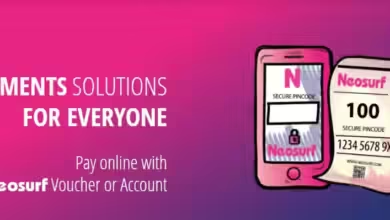Tips to Choose the Best Payment Gateways for Your Business

Choosing the right payment gateway for your business is a critical decision that impacts customer experience, transaction security, and your bottom line. As online shopping continues to grow, having a secure payment processor that integrates seamlessly with your business operations is essential. This guide provides insights into selecting the best payment gateway, the features to look for, and why efficient credit card processors are vital for your business success.
Introduction to Payment Gateways
A payment gateway acts as the middleman between your business and the financial institutions that process payments. Whether you run an e-commerce store, a subscription service, or a brick-and-mortar shop, a reliable and secure payment processor is essential for smooth operations. The market is crowded with options, making it crucial to evaluate your needs carefully before choosing the best payment gateway for your business.
Why Choosing the Right Payment Gateway Matters
A payment gateway does more than just process transactions—it influences how customers perceive your business. A fast, secure, and user-friendly gateway:
- Improves Conversion Rates: Customers are more likely to complete purchases when the checkout process is seamless.
- Enhances Security: Protecting sensitive financial data is non-negotiable in today’s digital age.
- Facilitates Business Growth: The right gateway can support international payments, multiple currencies, and diverse payment methods, allowing your business to scale effectively.
Key Features of the Best Payment Gateway
When evaluating credit card processors and payment gateways, prioritize the following features:
- Security Features
Look for gateways with robust security protocols, such as PCI-DSS compliance, encryption, and tokenization. These features protect sensitive customer data and build trust in your brand.
- Compatibility
Your chosen gateway should integrate seamlessly with your e-commerce platform, accounting software, and CRM systems. This reduces manual work and minimizes errors.
- Multiple Payment Methods
The best payment gateway supports a variety of payment options, including credit cards, digital wallets, and local payment methods, ensuring a positive experience for all customers.
- Transaction Speed
Fast transaction processing ensures that your customers won’t abandon their carts due to long waiting times at checkout.
- Transparent Pricing
Understand the pricing structure, including setup fees, transaction fees, and monthly charges. Hidden fees can eat into your profit margins.
- Customer Support
Choose a gateway with 24/7 support to resolve any technical issues quickly, minimizing disruptions to your business.
Steps to Choose the Best Payment Gateway
- Understand Your Business Needs
Start by assessing your business requirements:
- Do you operate locally or internationally?
- What is the average transaction value?
- Are subscriptions or recurring payments a part of your business model?
Answering these questions will help you narrow down gateways that align with your needs.
- Evaluate Security Measures
Ensuring customer data is secure should be your top priority. Look for a secure payment processor that uses encryption and is compliant with industry standards.
- Check Compatibility
Your payment gateway should work well with your existing systems. For instance, if your website is built on Shopify or WooCommerce, confirm the gateway is supported by these platforms.
- Analyze Costs
Compare pricing structures among credit card processors. Look beyond transaction fees to include chargeback fees, international fees, and any potential hidden costs.
- Test the User Experience
A cumbersome checkout process can drive customers away. Opt for a gateway that provides a seamless and intuitive experience across devices.
Comparing Popular Payment Gateways
Here’s a brief comparison of some top players in the market:
- PayPal
- Pros: Global reach, user-friendly, and supports multiple payment methods.
- Cons: Higher transaction fees compared to other processors.
- Stripe
- Pros: Highly customizable, robust API integration, and supports recurring billing.
- Cons: Requires technical expertise for setup.
- Square
- Pros: Ideal for small businesses, easy-to-use hardware, and no monthly fees.
- Cons: Limited features for international businesses.
- Authorize.Net
- Pros: Comprehensive security features and 24/7 support.
- Cons: Higher setup costs and fees.
- Adyen
- Pros: Supports global businesses, multiple currencies, and diverse payment methods.
- Cons: Complex pricing structure.
Challenges of Choosing a Payment Gateway
Selecting the best payment gateway isn’t always straightforward. Here are common challenges and how to address them:
- Balancing Cost and Features
While affordability is important, opting for a low-cost gateway with limited features might not be ideal. Invest in a gateway that offers value for money.
- Meeting International Needs
If your business targets global markets, choose a gateway that supports multiple currencies and localized payment methods.
- Handling Chargebacks
A good gateway offers tools to manage chargebacks effectively, such as fraud detection and prevention.
Benefits of Using a Secure Payment Processor
Choosing a secure payment processor comes with multiple benefits:
- Fraud Prevention: Advanced security features help reduce fraudulent transactions.
- Customer Trust: Customers are more likely to shop with businesses that prioritize data protection.
- Compliance: Adhering to industry regulations avoids legal issues and penalties.
Tips to Maximize Your Payment Gateway’s Potential
- Regularly Monitor Performance
Track metrics such as transaction success rates and downtime to ensure the gateway meets your expectations.
- Enable Multi-Currency Support
If you cater to international customers, enabling multi-currency options can boost sales.
- Optimize for Mobile
With the rise of mobile shopping, ensure your gateway provides a smooth experience on all devices.
- Stay Updated on Security
Keep your gateway’s software updated to leverage the latest security features.
Case Studies: Businesses Choosing the Right Payment Gateway
Case Study 1: E-Commerce Start-Up
A start-up chose Stripe for its flexible API and recurring billing support, enabling seamless subscription management.
Case Study 2: Local Retail Store
A small retail shop opted for Square due to its simple setup and affordable hardware, enhancing in-store payment efficiency.
Case Study 3: Global Enterprise
A multinational business selected Adyen for its ability to handle high-volume transactions in multiple currencies.
Conclusion
Selecting the best payment gateway for your business is a vital step toward providing excellent customer service and ensuring secure transactions. By evaluating your business needs, focusing on security, and considering compatibility, you can find a solution that aligns perfectly with your goals. Don’t rush the decision—research your options and choose a gateway that sets your business up for success.
FAQs
- What makes a payment gateway the best for my business?
The best payment gateway aligns with your business needs, supports multiple payment methods, and offers robust security measures.
- How do I ensure my payment gateway is secure?
Look for gateways that are PCI-DSS compliant, use encryption, and offer fraud detection tools.
- Can I use multiple payment gateways?
Yes, many businesses use multiple gateways to provide flexibility and redundancy for customers.
- What is the difference between a payment gateway and a credit card processor?
A payment gateway facilitates the transaction process, while a credit card processor handles the actual movement of funds between the customer’s bank and the business.
By implementing these tips and insights, you can confidently select the best payment gateway, ensuring a secure and efficient payment process for your customers.



